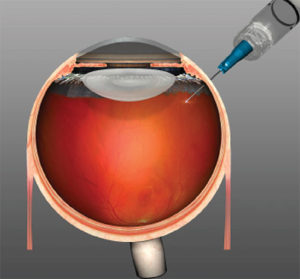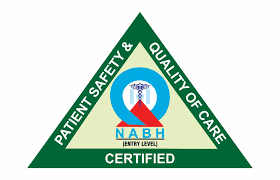Intravitreal Injections (Anti VEGF)
Our Services
Quick Consultation
Testimonials
Had a very good experience from the first consultation to the follow-up visits for my LASIK surgery. Dr. Aditi provides good information and details things really well. The staff is helpful and ensures timely reminders wherever needed. Best wishes to keep providing quality care services to their patients.

Which conditions require treatment with anti VEGF injections?
- Wet age-related macular degeneration
- Myopic choroidal neovascularization
- Diabetic macular oedema
- Retinal vein occlusion
- Any other retinal conditions that causesfluid to leak under the retina
Age-related macular degeneration (AMD)
Age-related macular degeneration (AMD) is the leading cause of vision loss in people aged 50 years or older. It involves damage to the part of the eye called the macula. The macula is a small, but extremely important area located at the centre of the retina, the light-sensing tissue that lines the back of the eye.
The macula is responsible for seeing fine details clearly. A person with AMD loses the ability to see fine details, both close-up and at a distance. This affects only the central vision. The side, or peripheral, vision usually remains normal. For example, when people with AMD look at a clock, they can see the clock’s outline but cannot tell what time it is.
What is different about “wet” AMD?
There are two types of AMD. Most people (about 75%) have a form called “early” or “dry” AMD, which develops when there is a waste build-up under the macula. This state is compatible with normal or partially reduced vision. A minority of patients with early AMD can progress to the vision-threatening forms of AMD called lateAMD. The most common form of late AMD is “exudative” or “wet” AMD. Wet AMD occurs when abnormal blood vessels grow underneath the retina. These unhealthy vessels leak blood and fluid, which can prevent the retina from working properly. Severe damage leads to severe permanent loss of central vision, but the eye is not usually at risk of losing all vision (going ‘blind’) as the ability to see in the periphery remains. There is a less common form of late AMD called geographic atrophy, where vision is lost through the macular tissue becoming completely worn out and there are no leaking blood vessels. Unfortunately, anti-angiogenic medicines cannot help this form of late AMD.
Myopic choroidal neovascularization:
This condition occurs in people who are highly myopic (short-sighted). When someone is highly short-sighted, the retina at the back of the eye is stretched due to the increased size of the eye. This stretching can make the retina thinner and prone to splitting. When this occurs, blood vessels from the choroid (the layer of the eye behind the retina) can grow underneath the retina. These new vessels (neovascularisation) leak blood and fluid, which can prevent the retina from working properly. Severe damage leads to severe permanent loss of central vision.
What treatment is available?Diabetic macular oedema (DMO)
Retinal Vein Occlusion (RVO)
RVO occurs when one of the retinal veins is blocked. The retina is the light sensitive tissue that lines the back of the eye and is responsible for the eyesight. RVO usually occurs when a retinal vein is: “pinched off” through the pressure of an artery lying on top of the vein; or is clogged with a blood clot or atherosclerotic plaque (fatty deposit in the wall of the artery); or is blocked by some inflammatory conditions.

